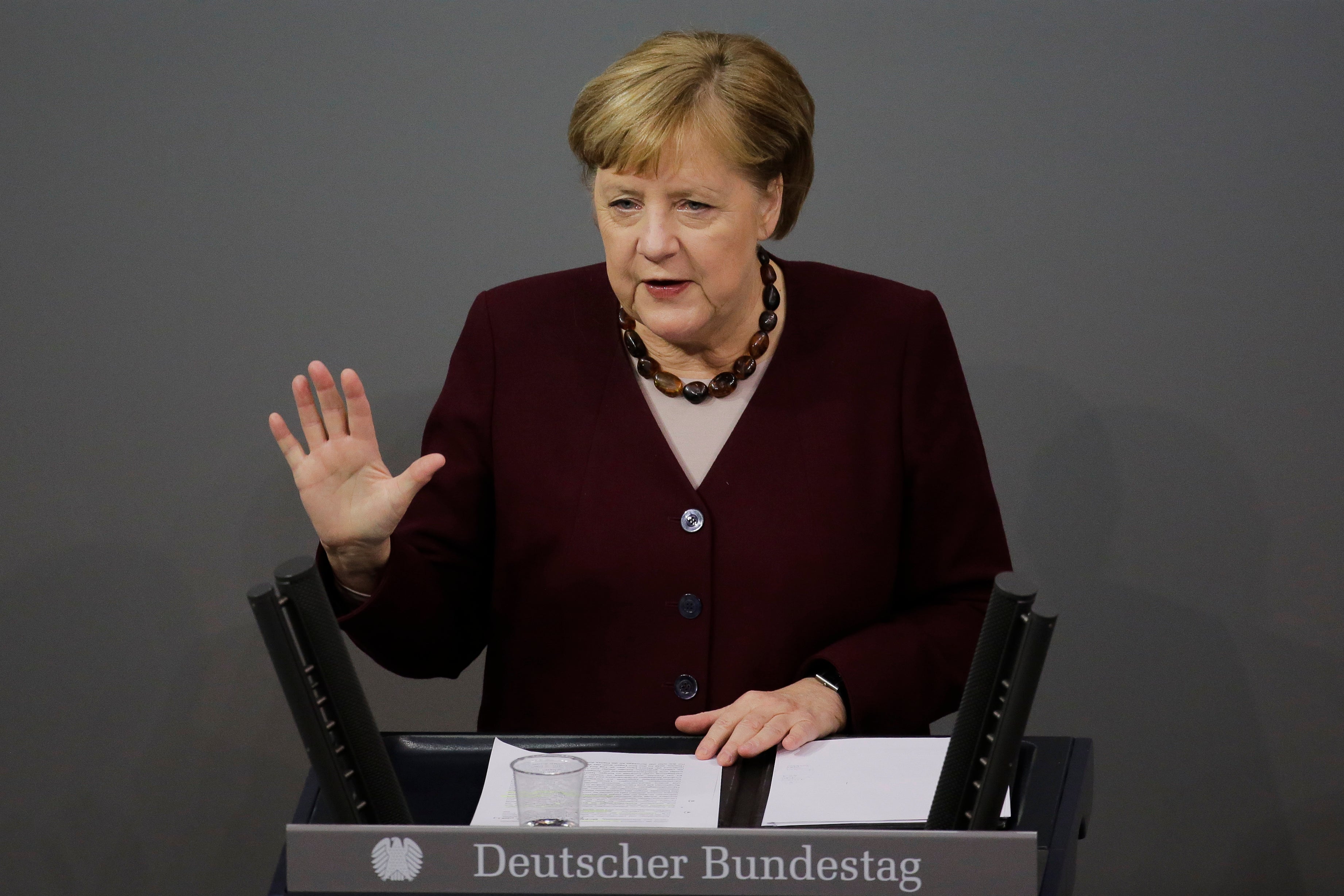Germany's Merkel: Brexit no-deal would set bad example
German Chancellor Angela Merkel says Britain and the European Union would set a bad example if they fail to reach a deal on their future relationship, but again insisted that the EU doesn’t want a deal at any price

Your support helps us to tell the story
From reproductive rights to climate change to Big Tech, The Independent is on the ground when the story is developing. Whether it's investigating the financials of Elon Musk's pro-Trump PAC or producing our latest documentary, 'The A Word', which shines a light on the American women fighting for reproductive rights, we know how important it is to parse out the facts from the messaging.
At such a critical moment in US history, we need reporters on the ground. Your donation allows us to keep sending journalists to speak to both sides of the story.
The Independent is trusted by Americans across the entire political spectrum. And unlike many other quality news outlets, we choose not to lock Americans out of our reporting and analysis with paywalls. We believe quality journalism should be available to everyone, paid for by those who can afford it.
Your support makes all the difference.German Chancellor Angela Merkel said Monday that Britain and the European Union would set a bad example if they fail to reach a deal on their future relationship, but again insisted that the EU doesn't want a deal at any price.
The U.K. left the EU on Jan. 31, but remained part of the 27-nation bloc’s economic embrace during an 11-month transition as the two sides tried to negotiate a new free-trade deal to take effect Jan. 1. Talks have already slipped past the mid-November date long set as a deadline for an agreement to be reached if it is to be approved by lawmakers in Britain and the EU before the end of the year.
Britain has angered the EU with a bill that breaches parts of the legally binding withdrawal agreement that allowed for the U.K.'s exit from the bloc in January. The Internal Market Bill gives the U.K. power to override sections of the agreement dealing with Northern Ireland trade.
“All the same, I hope that we will still come to a contractual solution,” Merkel told a virtual gathering of members of parliaments’ European affairs committees. “We, Britain and the member states of the European Union, are countries that are based on the same values, and it would not be a good example for the world if we didn't in the end manage to craft an agreement.”
Germany currently holds the EU's rotating presidency, though the Brexit talks are primarily a matter for the executive European Commission and its chief negotiator, Michel Barnier.
Merkel insisted again that an agreement, though highly desirable, isn't an absolute must-have.
“We have made clear that we don't need an agreement at any price,” she said. “We want one, but otherwise we will take (the) measures that are necessary — in any case, an agreement is in everyone's interest.”
If there is no deal, New Year’s Day will bring huge disruption, with the overnight imposition of tariffs and other barriers to U.K.-EU trade. That will hurt both sides, but the burden will fall most heavily on Britain, which does almost half its trade with the EU.
“The call for contingency measures from some member countries is now getting increasingly loud,” Merkel said. “I would wait as long as possible with this — we should focus all our strength on the last phase of the negotiations.”